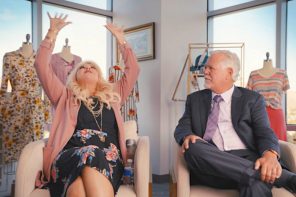As condemnations of Sunday’s talk by Elder Boyd K. Packer continue to roll in from LGBT groups and their allies, I’m also hearing from many LDS people, gay and straight, who are grappling with the talk and the controversy.
No one expected Elder Packer to retool the Church’s position on same-sex marriage. That position has been dearly bought and paid for in millions of dollars and thousands hours donated by US-based Church members from the community’s multigenerational Mormon core. And it is grounded in a uniquely Mormon theology that sacralizes marriage as a rite necessary to salvation.
But it’s the tone of the talk—which I’ve heard described as “bruising” and “scolding” by observant LDS Church members—that seems to be really getting to people.
Over the past decade, one thing we’ve been able to count on from most LDS leaders delegated to address homosexuality (apart from the discourse surrounding Proposition 8) is a measured and careful tone. That tone reflects some acknowledgment of the struggles many, many LGBT people—including those who acknowledge their sexual orientation but choose to remain celibate and orthodox—go through as they live their lives with dignity. At the core of that tone was a recognition that there are people—those who experience same sex attraction as well as their families and Church leaders—for whom this issue is very difficult and very demanding.
That careful, measured tone was not the tone I heard on homosexuality at the Conference Center Sunday morning.
Now, on the message boards that accompany every article written on this piece, I see LDS people at odds with one another. I read comments from Mormons bravely telling the stories of their own lives, their children, the LGBT people they love, and alongside them I read Mormons indulging in base homophobia totally unrelated to doctrine and who feel they have prophetic sanction to do so.
What tone will govern Mormon discourse on homosexuality?
Will our speech be compassionate and careful?
My grandmother was a daughter of the Utah pioneers. She moved to Los Angeles during the Great Depression and lived her adult life as a Mormon in the diaspora. When they found out she was a Mormon from Utah, people in Los Angeles, she recalled, would sometimes reach out to feel her head for horns. Late in her life, she and I talked about homosexuality—we talked about everything—and she recalled back in the 1950s a boy who grew up on her block in her middle-class Los Angeles suburb, a child who she always knew was different, and kindly she asked, “I wonder what has happened to him? I wonder if everything turned out okay for him?”
Kindness was the core of her Mormonism.
In this moment, her memory is a blessing.




